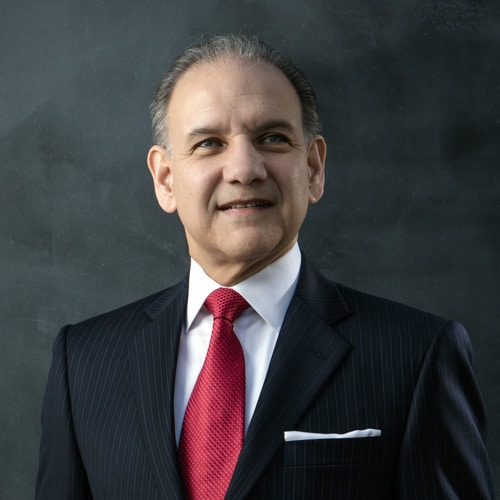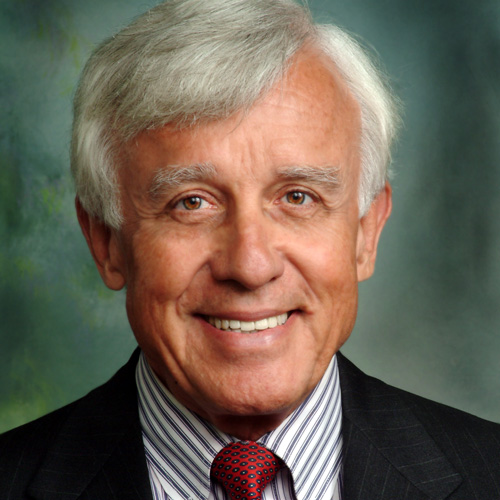By the time Patricia Diaz Dennis took on her first board director seat, she had already shattered gender and cultural barriers in private practice, government, and the heavily male-dominated communications industry.
Board Snapshot
US Steel (NYSE:X), Board of Directors
Massachusetts Mutual Life Insurance Company, Board of Directors
Entravision Communications (NYSE:EVC), Board of Directors
Diaz Dennis doesn’t think any one event or job shaped her for the boardroom. She believes the cumulation of all her life experiences makes her an effective board member, starting with exposure to different cultures in her childhood. The daughter of an army sergeant and a secretary, she moved often with her family, living in North Carolina, Japan, and Chile. “If I had stayed in North Carolina or New Mexico where I was born and most of my parents’ families lived, I would have ended up like everyone else and most likely would not have gone to college. I would not have reached for the stars,” Diaz Dennis says.
She graduated on the dean’s list at UCLA, and had long anticipated becoming an English teacher. But her husband, then a law student, encouraged her to attend law school because “she was already winning all the arguments at home.” So Diaz Dennis attended Loyola Law School in Los Angeles, where she was the executive editor of the Law Review.
Diaz Dennis went on to be the first Latina associate hired at Paul Hastings, a prestigious Los Angeles firm, and in 1978 transitioned to the in-house legal team at ABC. There she worked on labor and employment matters, and loved seeing the stars of popular television shows on the studio lot.
Then, in 1983, the White House came calling: would she be interested in serving on the National Labor Relations Board? Three weeks later, she cinched her selection by President Ronald Reagan. By 1986, she was appointed Commissioner on the Federal Communications Commission. President George H.W. Bush went on to appoint her Assistant Secretary of State for Human Rights and Humanitarian Affairs.
Those Washington, DC, experiences set the baseline for her approach in boardrooms and helped instill one of her core professional principles: kindness.
“I don’t know whether you can really prepare for a career catapult like a presidential appointment other than education and developing an ethical and hard-working reputation,” Diaz Dennis says. “People say networking is also important, but I think it’s more. It’s developing relationships. Handing out a card and having people remember your name isn’t enough. I have formed friendships, created alliances with folks who recommended me for every job I have ever held except the first one at Paul Hastings. It’s so important to be kind to people. You see the same folks going down the ladder as those with whom you’ve dealt going up.”
This philosophy ensures that the focus isn’t on her but on the job she has to do and on the company on whose board she serves. Her experiences have given her deep knowledge of how government and regulatory agencies work and, having also worked for and advised corporations, she is able to draw on her experiences to think holistically about board decisions.
And Diaz Dennis is a strong believer in giving back. Her desire to serve her community was instilled in her as a Girl Scout (she was thrilled to act as Chair and Vice Chair for Girls Scouts of the USA in the 2000s), and that experience, coupled with motherhood, makes her determined to make a difference. She wants to change the world—for people of color in particular.
Currently, she sits on the boards of three corporations: US Steel, Massachusetts Life Insurance Company, and Entravision Communications. Because of her real-life experiences with labor and employment, she is able to bring value in dealing with these issues and thoughtfully discuss sticky issues in these arenas. The same is true of government regulation and oversight. She has dealt with regulation from many perspectives—as a regulator, outside counsel, and in-house counsel.
Diaz Dennis brings continuity to decision-making at MassMutual. She joined the Connecticut Mutual board just before it merged with MassMutual. As the last remaining member with that history, she has deep knowledge of that significant event and those that followed in the company’s history. She will continue to bring insights to governance before she steps down in April.
“It’s cumulative knowledge, really,” she says. “Everything I’ve done accumulates and helps inform subsequent decisions. One really important thing in discussions in the boardroom is to talk about contentious issues in a thoughtful and respectful way.”
For Diaz Dennis, emotional intelligence is as important as IQ. She says people often underestimate its importance in the corporate world. Based on data we each store in our brain, we receive signals or gut feelings when something isn’t quite right. When making decisions, Diaz Dennis considers the data and tunes in to her intuition. She brings her perspective as a Latina to every board meeting, and is a strong advocate for diversity, believing companies can benefit from a more inclusive approach.
True leadership, she insists, results from setting one’s goals, and acting ethically in striving to achieve them. “It’s about leading your life intentionally and deciding where you want to go and how to get there,” she says. “We can be leaders in our own spheres whether as lawyers, engineers, plumbers, or full-time parents. If we live our lives with purpose and intentionality, we are leaders.”
Following her philosophy, Diaz Dennis has served on several for-profit boards and dozens of nonprofit boards, including National Public Radio, the National Council of La Raza, and the Hispanic Scholarship Fund. In the years ahead, Diaz Dennis wants to travel a bit more, take a calligraphy class and do more for the city she loves, San Antonio.
 In the Director’s Seat With Esther Aguilera
In the Director’s Seat With Esther Aguilera
Esther Aguilera: In addition to your extensive corporate and legal experience, you served in three very different senior executive roles in government, including the National Labor Relations Board, the Federal Communications Commission, and as Assistant Secretary of State for Human Rights and Humanitarian Affairs. Describe how you applied your government sector experience to your corporate board roles.
Patricia Diaz Dennis: Today, every company has varying degrees of federal regulation and oversight. I’ve been able to advise and counsel companies about how to best deal with governmental regulatory and administrative bodies. Part of my value added to the boards has been to help determine how best to frame company positions on pending issues in light of the government’s objectives in advancing the public interest. Having a deep understanding of how Washington works and how to best align a company’s perspective and needs with the government’s are helpful in many arenas.
EA: Would you advise mid-career professionals or corporate executives to consider leadership roles on regulatory boards and commissions in their pathway to the boardroom?
PDD: My recommendation would be to dedicate oneself to excellence in a chosen field. Without a doubt, presidential appointments helped me secure corporate board positions, but I didn’t go out searching for government appointments—I was selected based on prior experience. I had been a labor lawyer for ten years when the Senate confirmed me for the NLRB. My work in the broadcast industry for ABC led to my eventual FCC appointment. Many people obtain government appointments by becoming politically active, which can indeed lead to a board position. I encourage young people to start their careers in government. It’s a wonderful educational experience to learn how government agencies and departments actually work. Also, for mid-career folks, being active in their communities on a school board or an advisory board is a possible pathway to the boardroom. You never know who you’ll meet and you’ll learn a lot about governance principles. Serving on nonprofit or social-sector boards is good for the same reasons—working with dedicated people. They may be the ones who help you chart your path to the corporate board world.

